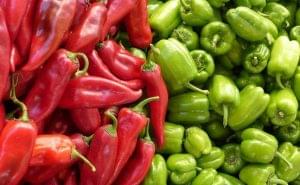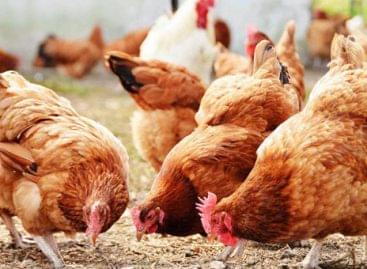The crisis of spicy peppers: declining production and growing challenges
The Szeged spice paprika, once a pride of Hungarian gastronomy and agriculture, is now facing serious challenges. Weather extremes, rising costs and import pressure all contribute to the fact that production and the area under cultivation are decreasing year by year. According to Anita Molnár, the managing director of PaprikaMolnár Kft., the situation could worsen further if no meaningful intervention is made – writes Telex.
Weather and economic challenges
 In 2024, the July heat wave and drought caused significant damage to the Szeged pepper fields. The pepper, which is a water-intensive crop, did not receive sufficient irrigation in many places, as the farmers’ water supply from wells was exhausted. Although the rains that arrived in early autumn could have improved the situation, the second harvest did not bring satisfactory results either. PaprikaMolnár Kft., which grows peppers on more than one hectare, was forced to replace the missing crop from other farmers and buyers in order to maintain its operations.
In 2024, the July heat wave and drought caused significant damage to the Szeged pepper fields. The pepper, which is a water-intensive crop, did not receive sufficient irrigation in many places, as the farmers’ water supply from wells was exhausted. Although the rains that arrived in early autumn could have improved the situation, the second harvest did not bring satisfactory results either. PaprikaMolnár Kft., which grows peppers on more than one hectare, was forced to replace the missing crop from other farmers and buyers in order to maintain its operations.
The high costs of production also pose a serious burden for the company. Due to the drastic increase in gas prices, the company was forced to limit its drying activities in 2022, which further aggravated the situation.
Decreasing production area and number of farmers
According to data from the Central Statistical Office, the area under spice peppers was 9 thousand hectares in 1990, but today there are barely 1,000 hectares left. The yield has also decreased significantly: in 2000, 31 thousand tons were harvested, while in 2023 only 8 thousand tons.
According to Anita Molnár, the cultivation of spice peppers is now less attractive to the younger generation. Older farmers are increasingly retiring and younger ones are turning to other, more profitable activities. Attracting new growers is difficult, as growing peppers is manual labor-intensive and its profitability is unpredictable.
Related news
Related news
The impact of the forint exchange rate on GDP growth
🎧 Hallgasd a cikket: Lejátszás Szünet Folytatás Leállítás Nyelv: Auto…
Read more >Cheese-cocoa-peach jam: these are the most popular cookie flavors
🎧 Hallgasd a cikket: Lejátszás Szünet Folytatás Leállítás Nyelv: Auto…
Read more >








